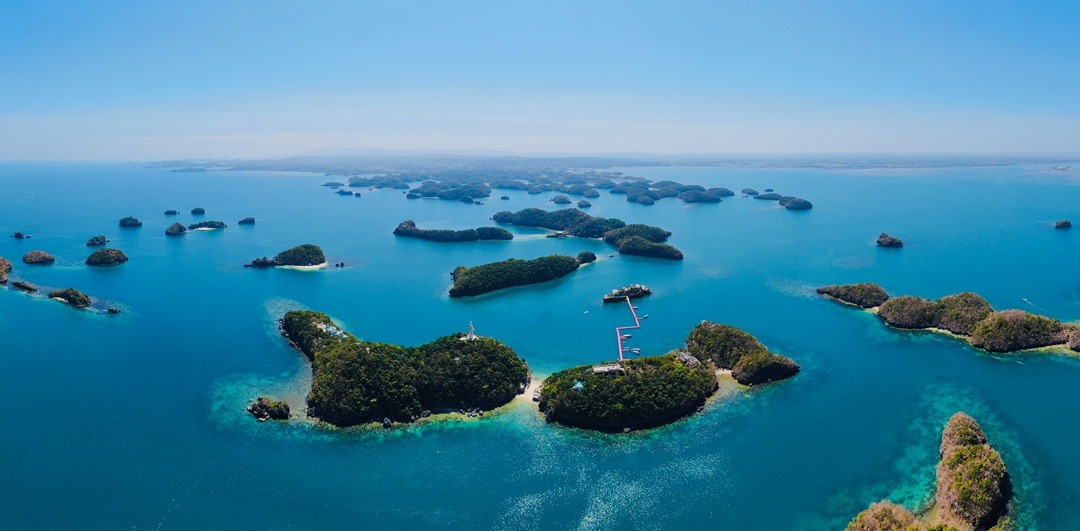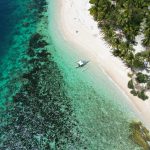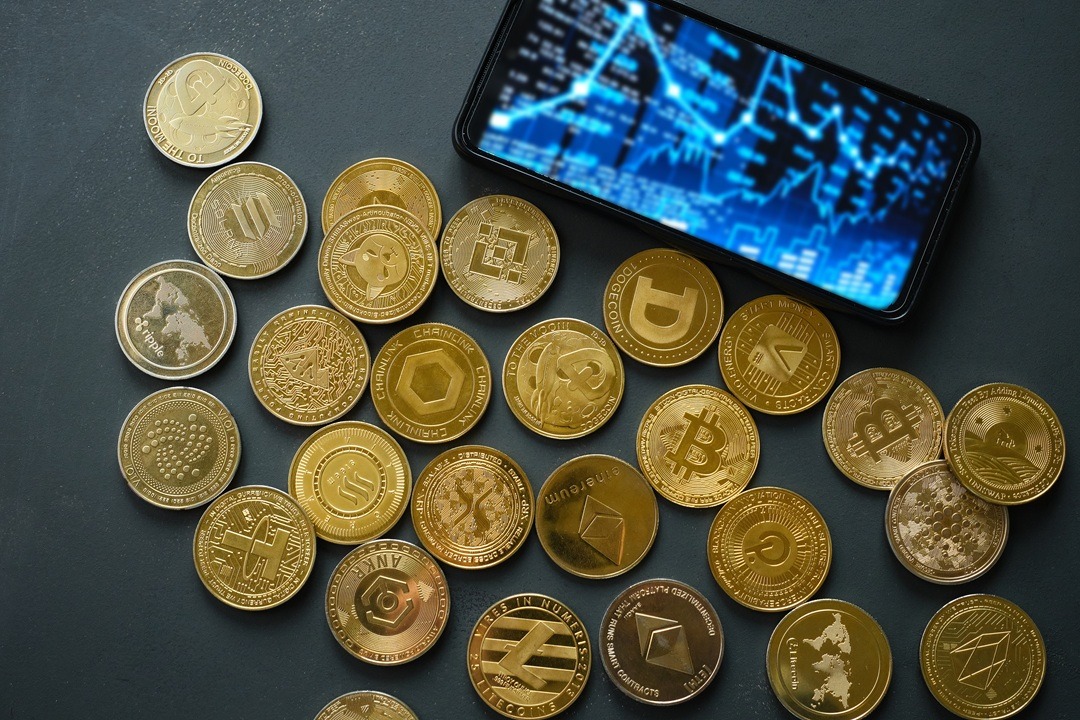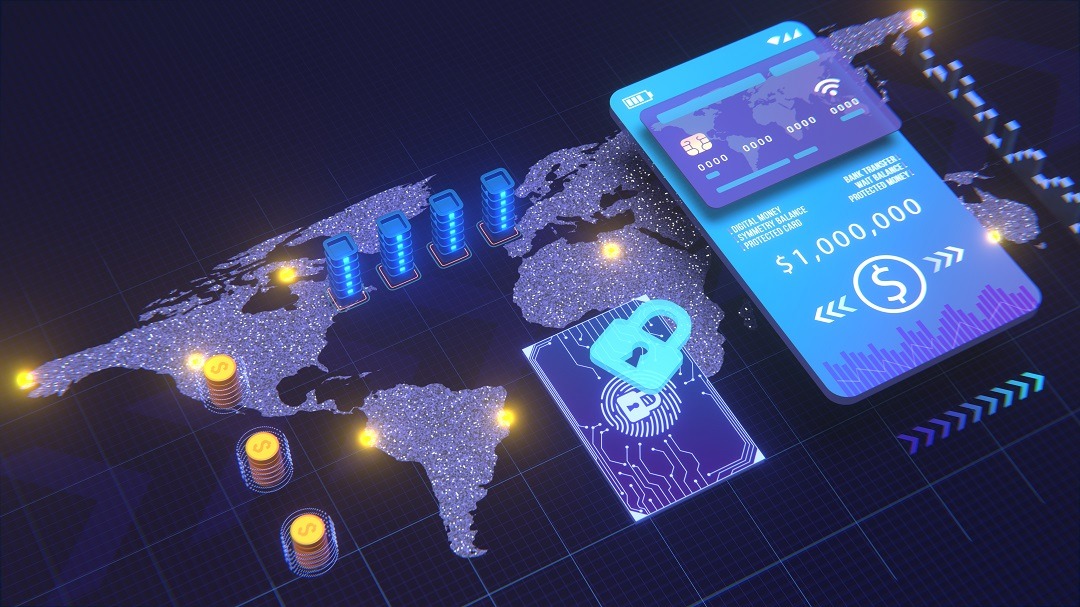What Makes the Philippines Ideal for Free Zone Offshore Banking?25 min read
Reading Time: 9 minutesPhilippines Free Zone Offshore Banking is on the agenda of many investors. It will attract even more attention in 2025.
The Philippines is a friendly island nation in Asia with its tropical islands, rich culture and friendly people. Moreover attracts investments in international offshore banking due to its sophisticated financial system and economic advantages from its various economic zones.
The article explores the reasons behind the Philippines being a prime location for offshore banking in its free zones and details how The Kingdom Bank provides services to customers who want to benefit from these opportunities.
The Philippines has emerged as a top offshore banking destination because its network of special economic zones delivers competitive digital offshore account solutions to both businesses and individuals.
Modern financial systems developments together with regulatory standard improvements in the Philippines help clients realize its position as a top location for free zone offshore banking.
What Makes the Philippines a Top Choice for Offshore Banking in Free Zones?
Multiple compelling factors make the Philippines an attractive offshore bank account destination and establish its economic zones known as free zones as prime locations.
Some of the key factors include:
- Stable business environment and pro-business policies: A market economy combined with a democratic system in the Philippines generates stable GDP growth rates. The Philippines attracts foreign investment through its adoption of business-friendly policies that offer incentives including tax holidays.
- Strategic geographic location: Due to its mid-point position among key economic centers throughout Asia, the Americas, and Oceania the Philippines serves as an ideal location for regional and international business activities. The Philippines benefits from numerous trade agreements which open up broad market opportunities for its businesses.
- Low operating costs: The Philippines provides lower labor expenses and real estate prices together with reduced living costs compared to other Asian countries. The Philippines attracts businesses that want to establish their regional or international headquarters.
- Well-educated, English-speaking workforce: The Philippines’ history as an American colony has resulted in English proficiency for over 90% of Filipinos today. Each year the Philippines produces over one million college degree holders who enter multiple industries with professional skills.
- Developed financial infrastructure: The Philippines maintains a reliable banking system that operates under the strong supervision of regulatory institutions with the Bangko Sentral ng Pilipinas (Central Bank) leading the charge. The Philippines provides financial services through operations by major international banks.
- Tax incentives in free zones: Freeports and equivalent special economic zones offer comprehensive tax exemptions together with holidays from income taxes and expenses related to capital equipment, raw materials and exports. The Philippines stands as a formidable competitor in the offshore banking and corporate operations arena.
How Does Offshore Banking in the Philippines’ Free Zones Benefit Foreign Investors?
The establishment of offshore banking operations or companies inside the Philippines free zones offers foreign investors several advantages.
- Zero tax on profit: Profits from business operations and services in free zones receive an exemption from corporate and individual income taxes during their first four to eight years.
- Tax exemption on imported goods: Capital equipment and raw materials that enter free zones are exempt from customs duties and import taxes along with all other related fees.
- Streamlined business registration: Free zones operate dedicated economic zone authorities that help businesses complete regulatory requirements rapidly while offering single-window services for licenses and permits, including opening an offshore account in Philippines free zone.
- Flexible ownership rules: Businesses operating in free zones obtain complete foreign ownership thereby eliminating the need to partner with local entities. Companies have the ability to return all of their profits and capital to their home countries without restrictions.
- Residence visa for executives: Key corporate executives may receive long-term multiple entry resident visas that allow them to manage their offshore operations from the Philippines.
- Strategic location for regional expansion: Through its trade agreements the Philippines has established which allow businesses operating in its free zones to achieve expansion across Asian markets and internationally.
- Political and economic stability: Business planners receive greater operational predictability in the Philippines because its democratic status creates a trustworthy and clear environment that surpasses other low-tax regions.

What are the Legal Requirements for Offshore Banking in the Philippines?
Although free zones offer substantial benefits for businesses operating within the Philippines, the establishment of offshore banking operations must follow particular legal requirements and licensing conditions specified by the central bank along with other regulatory bodies.
- Obtain offshore banking license: Prospective offshore digital banks need to show adequate capitalization together with technical know-how and governance infrastructure during their Bangko Sentral ng Pilipinas application process.
- Appoint resident directors/managers: The bank shall appoint two-thirds of its board members from people who reside in the Philippines. Senior executives at the bank including the President and General Manager must maintain their residency in the country.
- Comply with AML/CFT regulations: Customer due diligence requirements and the record keeping and reporting of large and suspicious transactions to the central bank are required by anti-money laundering and counter-terrorism financing regulations.
- Maintain adequate reserves: Offshore banks need to keep liquid reserves at the central bank that match a fraction of their customer deposits to safeguard funds and allow customer withdrawals.
- Adopt high accounting standards: Financial statements submitted to regulators need to meet international standards for transparency. Regular audits may be conducted.
The Kingdom Bank can obtain operational licenses for offshore banking within Philippine free zones by meeting necessary regulatory standards.
Through its strong supervisory framework, the central bank ensures both integrity and stability within the offshore financial sector.
How Do the Tax Benefits of Offshore Banking in Philippine Free Zones Compare to Other Countries?
Meaningful comparisons between the Philippines and other leading jurisdictions emerge from studying offshore banking tax benefits.
- Singapore: Singapore presents itself as a desirable regional hub but imposes a 17% corporate tax rate after incentives, which differs from the initial 0% tax rate offered in Philippines free zone offshore banking zones. Capital gains are also taxed in Singapore.
- Hong Kong: The standard corporate tax rate of Hong Kong remains at 16.5% and although incentives can lower this rate it cannot be eliminated completely. The Philippines offers a clear tax-free advantage.
- Caribbean nations: Businesses operating in the Bahamas and Cayman Islands benefit from the complete absence of corporate and income taxes just like companies in the Philippines’ special free zones. However, they lack the strategic geographic location.
- Middle East: Dubai among UAE’s free zones offers full tax exemption for both profits and income. Businesses looking to establish operations in the Philippines will find a developed infrastructure but they will require partnerships with local entities.
- Europe: Ireland and other EU countries with low tax rates maintain a standard corporate tax rate of 12.5%. A business can establish an offshore operation in the Philippines due to its unparalleled tax-free environment.
Offshore banks like The Kingdom Bank that seek to benefit from early-stage tax advantages will discover that the Philippines free zones offer highly competitive tax conditions for business expansion and market entry.
Tax incentives in the Philippines are equivalent to those offered in traditional tax havens.
Is Offshore Banking in the Philippines Secure and Well-Regulated?
Maintaining client funds and information security through proper regulatory measures remains a fundamental consideration for offshore financial organizations.
The Philippines gives substantial confidence regarding its regulatory frameworks.
- The central bank uses BASEL core principles to oversee banks by setting capital adequacy standards together with risk management and governance requirements.
- The EU removed the Philippines from its tax haven blacklist in 2019 following an assessment of its compliance with international information exchange standards.
- The presence of major international banks’ subsidiaries in the country confirms their confidence in the safety and stability of its financial system.
- Improved protection of customer data now exists because enhanced data privacy legislation follows European General Data Protection Regulation (GDPR) standards.
- The Philippines sustains a strong presence in global financial security measures through its ASEAN membership by fighting money laundering and terrorist financing alongside the Financial Action Task Force.
- The Philippine Deposit Insurance Corporation provides protection for bank deposits up to PHP 500,000 per depositor, ensuring safety for offshore banking account holders.
The Kingdom Bank clients benefit from their financial information and assets being secured through premier security protocols within a globally compliant jurisdiction that protects consumers. The central bank maintains financial sector stability by supervising operations closely.
The Kingdom Bank provides unparalleled advantages to international clients through its operations in Philippine free zones because of its competitive taxes and sophisticated financial system combined with its advantageous location in Asia.
The combination of a skilled workforce and a stable democratic environment alongside strict regulatory standards makes the Philippines an appealing choice for offshore banking.
People can open a The Kingdom Bank online account today to tap into the growing opportunities within the Asian market.
Can Foreigners Open Offshore Banking Accounts in the Philippines’ Free Zones?
Opening an offshore bank account in the Philippine free zones is a simple process for foreign individuals. Authorized special economic zones like the Cagayan Economic Zone Authority (CEZA) allow non-residents to open bank accounts without meeting standard Philippine residency requirements for onshore banking.
Foreigners can establish offshore banking accounts in Philippine free zones if they provide documents that validate their identity and source of funds.
CEZA has established itself as a leading international center for digital offshore banking solutions aimed at foreign clients. The jurisdiction of CEZA licenses offshore banks such as The Kingdom Bank which enable non-residents to easily establish bank accounts.
Remote account opening is possible after clients provide documents for identification and address verification without needing to visit a physical location.
CEZA’s free zone facilities attract numerous foreign investors and digital nomads because they offer a streamlined process to manage offshore financial transactions.

What Types of Accounts are Available for Offshore Banking in the Philippines?
Clients who open offshore accounts in the Philippines gain access to a wide range of products that fulfill different needs.
Banks operating in the Philippines’ free zones offer multiple well-known account choices for clients.
- Savings accounts offer ideal solutions for storing basic deposits while ensuring quick access to cash. Earn competitive interest rates.
- Checking accounts facilitate day-to-day transactions and payments. Associated debit cards available.
- Money placed in time deposit accounts needs to remain untouched for a set period before customers receive higher interest returns. Terms can range from 3-60 months.
- Escrow accounts hold client funds safely during real estate purchase transactions.
- Customers can control their mutual funds, bonds, stocks and other securities through a single investment account.
- Qualified professional trustees assist clients in establishing trusts and estate planning through trust accounts.
The Kingdom Bank offers banking accounts that support major digital currencies with deposit, swap, and withdrawal capabilities while maintaining standard account functions.
There are various offshore account structures available to satisfy nearly all financial needs.
How Do I Open an Offshore Banking Account in a Philippine Free Zone?
Customers can establish offshore banking accounts with approved institutions inside Philippine free zones using a streamlined process which takes 1-2 weeks post paper documentation submission.
Account applicants should expect these basic steps to guide them during their account application process.
- Investigate banking products and institutions operating in your selected free zone like CEZA to discover the optimal banking solution.
- Numerous Philippine offshore banks allow customers to apply for accounts using their online platforms. Fill out the online application form.
- Your bank’s KYC requirements mandate the submission of identification documents such as passports and evidence for both your residential address and financial assets.
- Opening most bank accounts requires customers to make an initial deposit that ranges from $1,000 to $5,000. Wire transfers are common.
- The bank reviews submitted documents before conducting essential checks to validate and authorize the application. The bank requires one to two weeks to process your application so long as all documents are submitted correctly.
- You will access online banking services and request debit cards along with other services for your new offshore account after approval is received.
The procedure allows non-residents digital convenience while keeping updated documentation essential. Opening an offshore account becomes most straightforward when using a Philippine free zone.
What Industries Benefit Most from Offshore Banking in the Philippines?
The Philippines offers offshore banking services for all types of clients which provide specific benefits to select industries through the country’s free zone model.
Offshore structures in the Philippines frequently service the technology, shipping/logistics, and real estate industries.
- Tech enterprises exploit low tax rates and flexible regulations in Philippine offshore companies because of the strong digital infrastructure and emerging startup environment in the country.
- The CEZA free port zone enables shipping and logistics companies to establish their regional headquarters and offshore subsidiaries.
- Foreign investors obtain Philippine property ownership through offshore entities while benefitting from tax advantages on rental revenue and capital gains returns.
- The Philippines creates a fully licensed environment for online casinos and other iGaming businesses through its offshore structures to address increasing global regulatory challenges.
- Philippine free zones present competitive benefits which financial institutions exploit when building regional hubs for digital banking operations and investment funds.
International industries and regional expansion seekers find the Philippines’ offshore banking benefits a suitable choice for tax efficient operations.
Are There Any Residency Requirements for Offshore Banking in the Philippines’ Free Zones?
The main advantage of opening an offshore banking account at a Philippine free zone is that it eliminates the need for account holders to be residents. Free zone jurisdictions provide financial services exclusively to non-resident clients which sets them apart from domestic onshore banking operations.
The majority of licensed offshore financial institutions in the Philippines operate within CEZA where account holders are not required by rules to be resident citizens.
CEZA enables offshore banking in Philippines free zone for investments services to completely non-resident foreign nationals who provide proper KYC identification to authenticate their identity and wealth origin without taking their domicile into account.
Digital nomads and foreign investors who operate internationally find the Philippines an appealing spot for offshore banking because it offers financial services without location limitations. The Philippine free zone banking sector benefits from global customer reach due to its lack of residency prerequisites.
The Philippines offers a strong value proposition for offshore banking seekers due to its established network of special economic zones.
Free zones including CEZA have established the Philippines as a premier free zone offshore banking destination through streamlined account opening and competitive tax incentives combined with strong digital infrastructure and no residency barriers.
Through its offshore banking solutions, The Kingdom Bank serves entrepreneurs building regional operations along with investors implementing global diversification strategies and individuals looking for tax-efficient savings options.
The Kingdom Bank offers digital banking solutions tailored to non-resident clients which you can investigate starting today. You can open your new offshore banking account in the Philippines free zone with just several basic clicks.
About The Author





